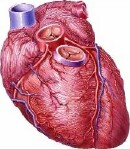Uniform guidelines needed that specify which hearts are acceptable for transplantation, experts say
WEDNESDAY, Feb. 11, 2015 (HealthDay News) — Even as the need for heart transplants increases, more donor hearts are being discarded, with a new study showing that only one in three donated hearts finds a recipient. The new report was published online Feb. 10 in the American Journal of Transplantation.
Using data from the U.S. government’s Organ Procurement and Transplantation Network for 1995 to 2010, the research team found that of 82,053 potential donor hearts, 34 percent were accepted and 48 percent were rejected. An additional 18 percent were used for other purposes, such as research.
Among the reasons for discarding donor hearts were small size, advanced age, and medical problems of donors such as high blood pressure and diabetes. “However, when we look closely at the data, we find that most of these hearts do perfectly well in their recipients,” lead researcher Kiran Khush, M.D., an assistant professor of cardiovascular medicine at the Stanford University School of Medicine in Palo Alto, Calif., told HealthDay. Another factor that might explain why donor heart acceptance rates have dropped is the increased use of mechanical heart pumps that can keep patients alive until a suitable heart is found, she added. Also, government agencies have increased their oversight of the 140 or so transplant centers across the country. As a result, surgeons may be more cautious about the hearts they use, thus upping the rejection rate of marginal hearts.
The study authors note that more donor hearts were accepted in the Northeast, where there are more transplant centers. In areas such as the Pacific Northwest, where there are fewer transplant centers, more marginal hearts were rejected, the study authors found.
Copyright © 2015 HealthDay. All rights reserved.








